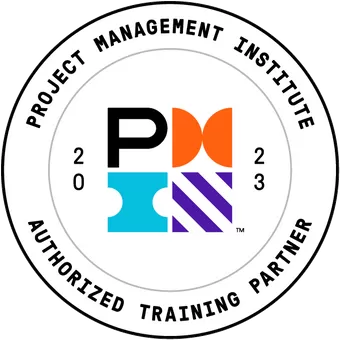
MoP® Certification Training Course - Management of Portfolios Principles, Practices, and Procedures
MoP® certification enhances your skills in optimizing portfolio performance, decision-making, and risk management. It includes two levels: Foundation for core knowledge and Practitioner for real-world application, globally accredited by PeopleCert.

Why Bakkah?
Money Guaranteed
Global Accreditation
Flexible Learning
About this Course
What is MoP®?
The MoP® or Management of Portfolios is defined as a structured framework that organizations use to manage portfolios process effectively that covers portfolio planning and applying plans. Additionally, organizations rely on this framework to achieve strategic goals, refine decision-making that ensures effective project selection and prioritization, and deliver successful investment outcomes.
The portfolio is a group of projects or programs that targets achieving strategic objectives by managing all of them together proactively. It covers a set of core aspects like risk management, strategic alignment, centralized management, and resource allocation.
What is Expected from this MoP® Certification Training Course?
The MoP® training is designed by experts to help you apply profile management practices effectively in the organization and be entitled to improve the financial outcomes through foundation and practitioner certifications. So here are the expected learning goals:
1- Learning Portfolio Management Fundamentals
Through the MoP® foundation level, you’ll identify the portfolio management concepts, benefits, and misconceptions along with understanding the meaning of the portfolio management model.
Additionally, you’ll learn portfolio management principles like senior management commitment, strategy alignment, and energized change culture.
2- Recognizing Portfolio Management Cycles
The MoP course is your gateway to understanding the meaning of portfolio management cycles, portfolio definition cycles, and portfolio delivery cycles. Understanding the importance and benefits of portfolio management is also covered in this course.
3- Implementing Portfolio Management
The practitioner level guides you on implementing the MoP framework in organizations, improving communications with stakeholders, managing potential risks, and tracking portfolio performance.
Who Should Go For the Management of Portfolios Course?
The Management of Portfolios MoP® course is aimed at those involved in a range of formal & informal portfolio management roles encompassing investment decision-making, project and program delivery, and benefits realization. It is relevant to all those involved in the selection and delivery of business change initiatives including:
- Members of Management Boards and Directors of Change.
- Senior Responsible Owners (sros).
- Portfolio, Programme, Project, Business Change, and Benefits managers.
- Business case writers and Project Appraisers.
What are the Acquired Skills of the MoP Course?
The Management of Portfolios course covers a set of advanced skills that demonstrate mastering portfolio management including:
- Portfolio performance analysis.
- Effective communication with stakeholders.
- Problem-solving.
- Organizational skills.
- Portfolio risk management.
- Decision-making.
- Leadership skills.
- Strategic alignment.
- Resources allocation.
- Monitor and control portfolio performance.
MoP® Certification Exam Prerequisite
Before starting to join the MoP course, you must check out the exam prerequisites for both foundation and practitioner levels:
Foundation level:
- None.
Practitioner Level:
To take the MoP Practitioner examination, you must hold a current MoP Foundation certificate.
MoP® Exam Format
Both MoP® foundation and practitioner levels have different format details, so check out the exam details of each level:
Foundation
- Multiple choice examination questions.
- 50 questions per paper.
- 25 marks required to pass (out of 50 available) - 50%.
- 40 minutes duration.
- Closed book exam.
Practitioner
- Objective testing format
- Four questions per paper with 20 marks available per question - all question items will be worth one mark, making the total number of marks available per paper 80
- 40 marks required (out of 80 available) to pass - 50%.
- Open book exam. Candidates may use the official printed hard copy of the Management of Portfolios guide. The manual may be annotated and tabulated but no sticky notes and loose leaf papers containing additional notes will be allowed.
MoP® Certification Exam Instruction
- You must pass the Foundation exam before the Portfolio Management Practitioner exam, either on the same day or separately.
- If you have previously passed the Foundation exam, you will be qualified to sit the Practitioner exam without needing to re-sit the Foundation.
- If you take the Portfolio Management Foundation exam only and pass, you will receive a Foundation examination certificate.
- If you sit both the Management of Portfolios Foundation and Practitioner exams on the same day and pass both, you will receive a Practitioner examination certificate only.
Course Inclusions
- Introduction about portfolio management
- Portfolio management definitions
- The portfolio management model
- The benefits of portfolio management
- Portfolio management misconceptions
- Portfolio management and strategic and business planning
- Portfolio management and budgeting and resource allocation
- Portfolio management and program and project management
- Portfolio management and performance management
- Portfolio management and corporate governance
- Portfolio management and corporate functions
- Introducing the portfolio management principles
- Portfolio management principle 1: senior management commitment
- Portfolio management principle 2: governance alignment
- Portfolio management principle 3: strategy alignment
- Portfolio management principle 4: portfolio office
- Portfolio management principle 5: energized change culture
- Introduction to the portfolio management cycles
- Why do organizations implement portfolio management?
- If there is no defined start, how should portfolio management be implemented?
- Planned vs Ad-hoc Approaches
- How is progress sustained?
- Why do organizational energy link the portfolio management cycles?
- portfolio management cycles
- Portfolio definition cycle
- Portfolio delivery cycle
- Portfolio management practice 1: understand
- Portfolio management practice 2: categorize
- Portfolio management practice 3: prioritize
- Portfolio management practice 4: balance
- Portfolio management practice 5: plan
- Portfolio management practice 6: management control
- Portfolio management practice 7: benefits management
- Portfolio management practice 8: financial management
- Portfolio management practice 9: risk management
- Portfolio management practice 10: stakeholder engagement
- Portfolio management practice 11: organizational governance
- Portfolio management practice 12: resource management
Our Happy Clients Say

I have a busy job...

With a demanding job, I thought exam prep was impossible. But self-study learning fit into my life perfectly—I studied anytime, anywhere. It was clear, well-structured, and I passed the exam on my first try.

I needed real interaction...

I was looking for a learning experience where I could truly engage with. Live sessions gave me clarity, motivation, and real-time support. The trainer and group sessions kept me focused and made tough topics easier to digest

Staying on track was...

Starting was easy—but staying consistent wasn’t. The live schedule and trainer check-ins gave just the push I needed. I stayed on track and actually finished the course and got certified!
FAQs
Through Bakkah, you can easily purchase the exam voucher. However, the registration and examination processes are handled directly between the trainee and the accreditation body. As an accredited partner, we can provide support whenever needed, but are not responsible for issues related to technical problems, scheduling, or your exam readiness.
No, there is no prerequisites for this course.
Yes, it is accredited from PeopleCert on behalf of Axelos.
No
This course is available only for self-study.
No
- Foundation: 40 minutes duration
- Practitioner: 3 Hours
English
Exam results will be announced within 2 business days after the candidate’s answers are officially submitted to us by the exam supervisor. In case you have received an email from PeopleCert informing you that there are pending actions from your side, please make sure that you complete the actions for the exam results to be issued.
Passing Criteria is 50%.
Yes, you can retake it. PeopleCert offers the Take2exam re-sit service at an affordable price
- You can purchase it along with the exam.
- If you succeeded, TAKE2 fees is nonrefundable.
- If you failed, you could take another chance using TAKE2.
Rescheduling an online exam up to 48 hours before its start time is free. For more details about exam scheduling and rescheduling, please review PeopleCert's FAQs.
No
Yes, you can get your hard copy Certificate. You need to order your hard copies through the PeopleCert Account with standard or courier delivery.
The dispatch and delivery times are below:
Standard Delivery (dispatched within 3-5 business days)
- 4-6 weeks - Europe
- 6-8 weeks - Rest of the world (exc. Europe)
Courier Delivery (dispatched within 1-2 business days)
- Delivered in up to 5 business days
English
Online classes are delivered using our Learning Management System (LMS). We provide access to pre-course reading, pre-post assessment, chapter exercises, practice test, case studies and to additional references Glossary/Recommended Reading in our LMS.
Yes. All candidates who acquired PeopleCert’s certifications will need to renew them within three years of their original certificate dates.
Please check the examples listed below:
- If certified before 30 June 2020: your certification will be valid until 1 July 2023 to renew your certificate, regardless of the original acquired date.
- If certified after June 2020: your certification(s) shall be renewed within 3 years of the original acquired date.
From 15 January 2023, you have renewal paths available as listed below:
- Retake the same exam: you can renew your certification by re-taking your original exam before the renewal date.
- Take further courses and certifications: you can renew your certification by attending another course and taking an exam within the same product package before the renewal date.
Please note that candidates who do not renew their certifications will still be included on the Successful Candidates Register (SCR) and the Candidate Verification Service (CVS).
However, a note will be added to their record to indicate that their certification needs to be renewed to align with current certification requirements.
Still not Sure What Fits Your Organization?


